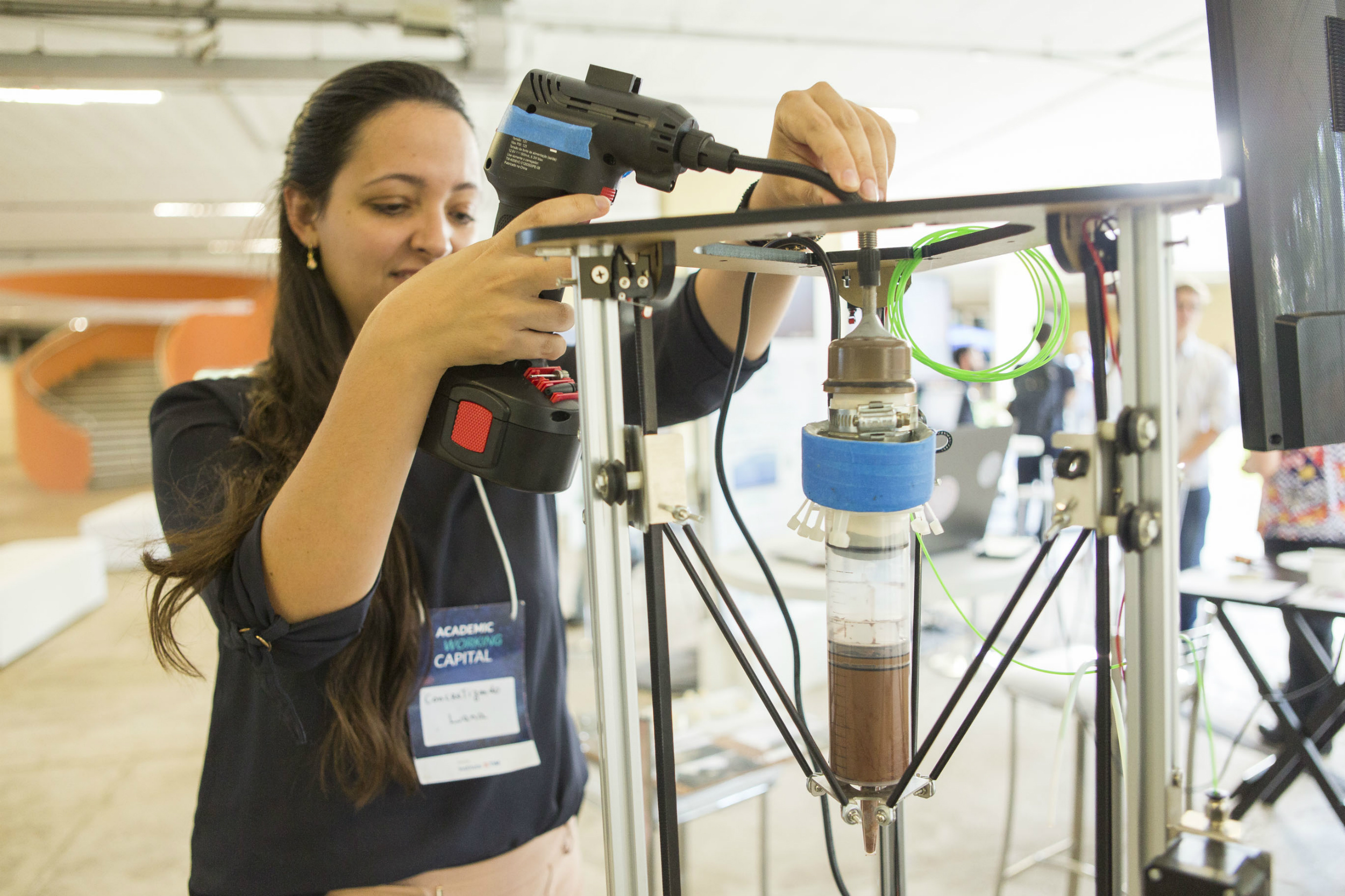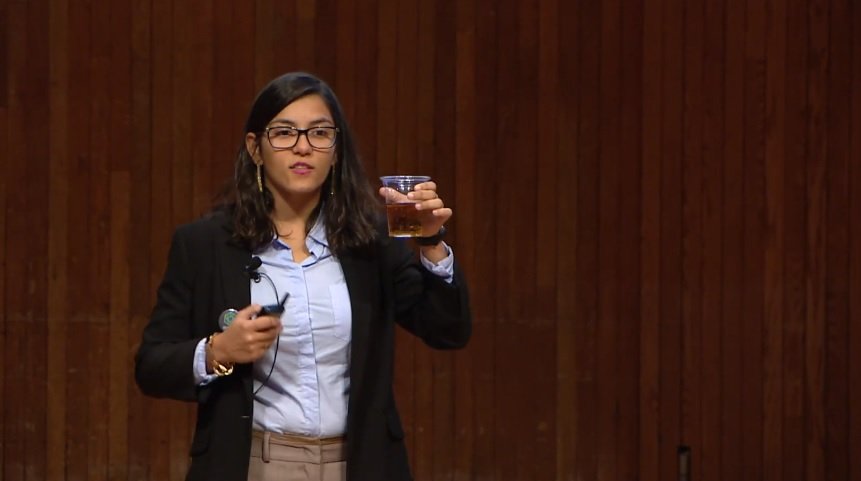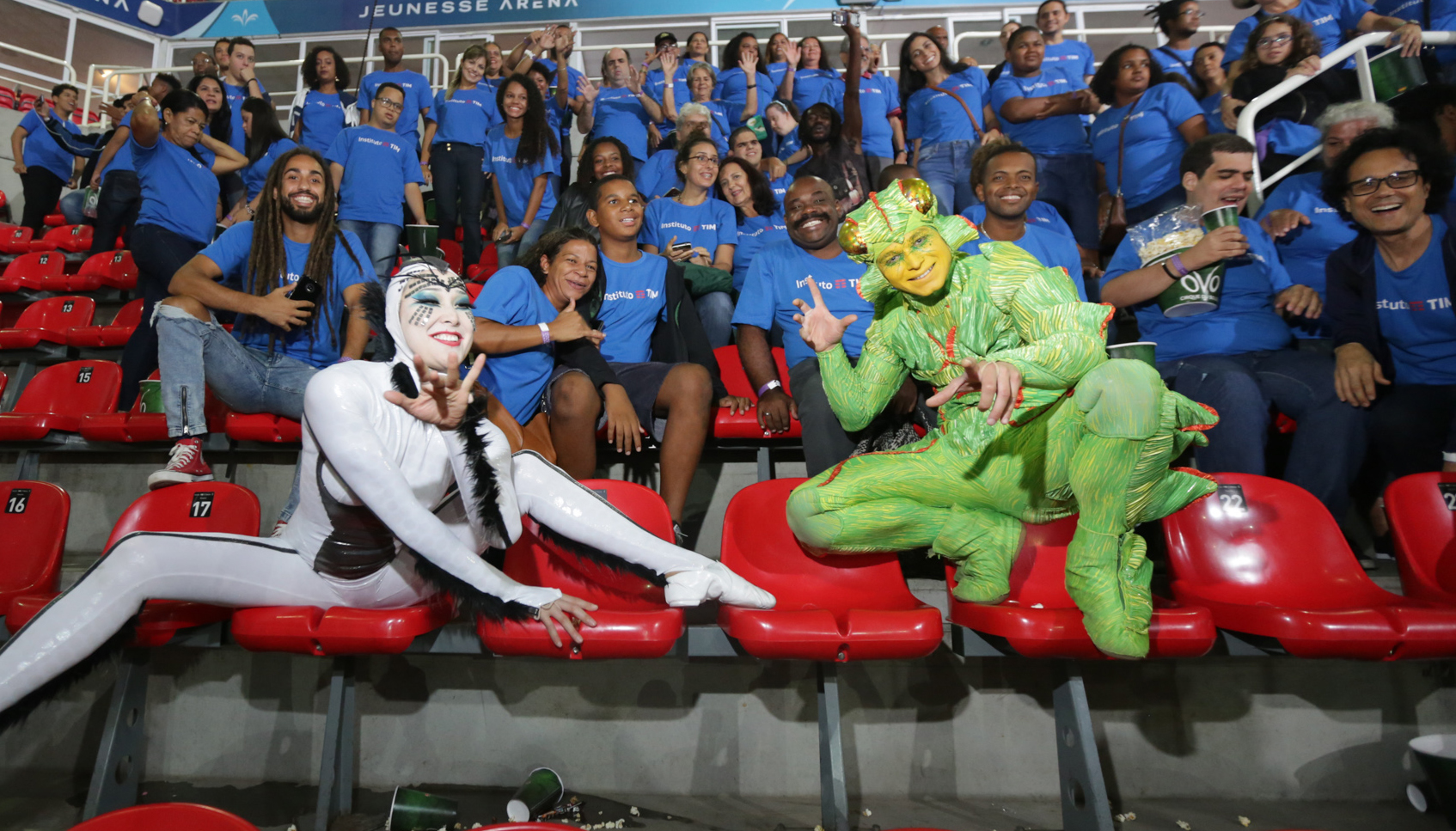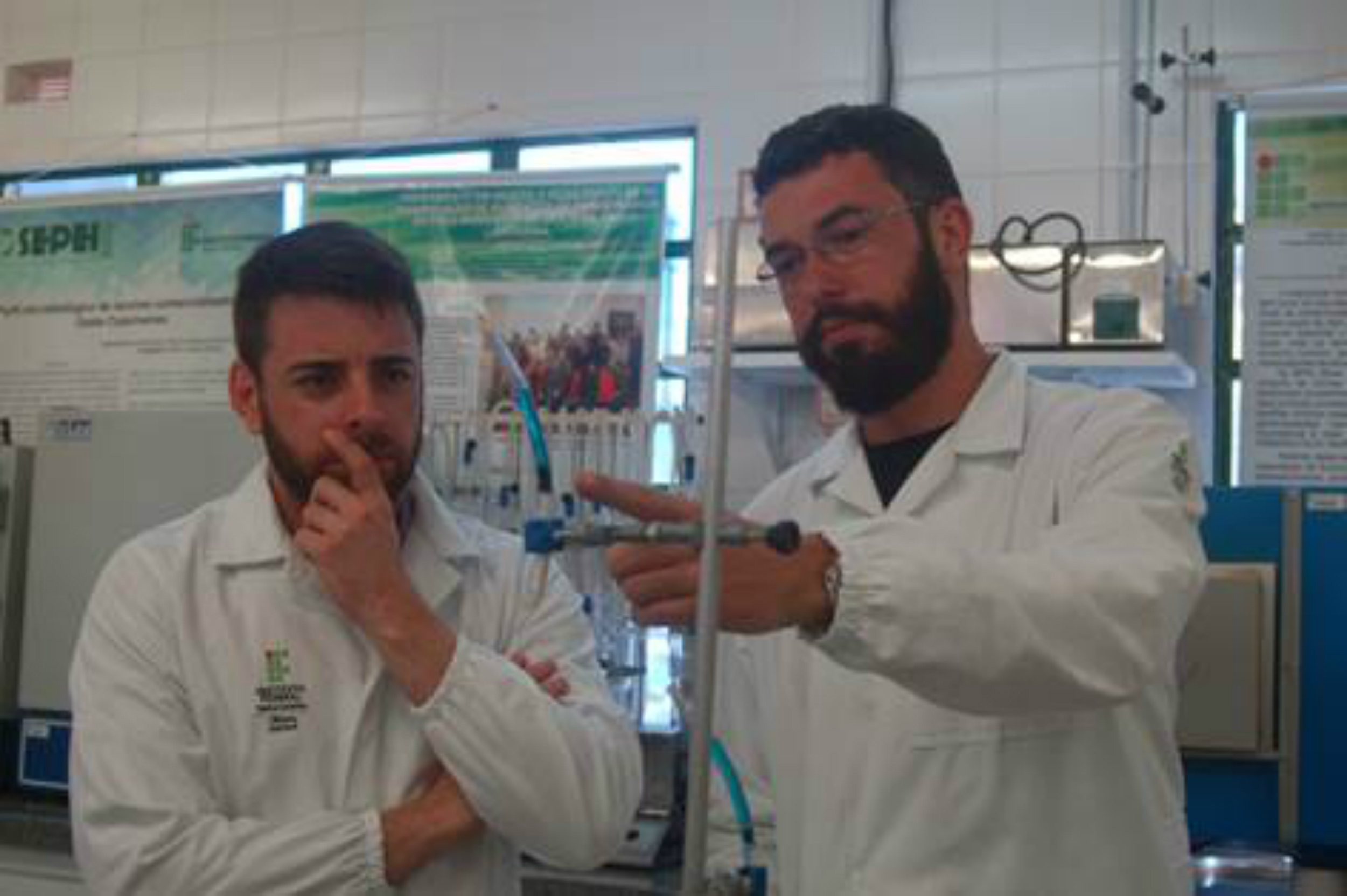
The spatial sciences and the exploration of outer space are themes that are quite faraway from Brazilian classrooms. Promoted in a partnership with Instituto TIM, the Garatéa-ISS project seeks precisely to shorten this distance by means of the involvement of Brazilian students with the Student Spaceflight Experiments Program. Public and private schools from the entire country participate in this project – the only requirement is to want to know more about space.
To propose a new kind of experience for the students was precisely what drew the attention of the Olga Benário Prestes Municipal School for Special Education, from Diadema, which participated in the program in the 2018/2019 cycle and now, in the 2019/2020 one. In the first year, only the classes for the students with hearing loss participated; but in 2019, the project was also broadened for the classes of hearers. “Nowadays I have students with hearing loss that want to be astronauts, chemists, astrobiologists, things that didn’t happen before Garatéa,” says the teacher Ana Paula Borgonovi.
The project’s content needed to be adapted with the subtitling of the formative videos and the contextualization of different scientific concepts that don’t exist in BSL (Brazilian Sign Language). “Garatéa opened many doors, improved their self-esteem. As the students with hearing loss started to understand about subjects that the hearers didn’t, the first began to explain them to the latter,” says Ana. Nowadays, the school is replete with graffiti with planets, stars, comets and astronauts, and space even became a graduation theme for the students of the last year of Junior High School. A proof of the school’s involvement is that one of the winners of Garatéa-ISS comes from there – the student Isabella Oliveira Azeredo, currently in the 4th grade, was one of the winners of the drawing contest of the 2018/2019 edition, and her art will be send to space in December 2019.
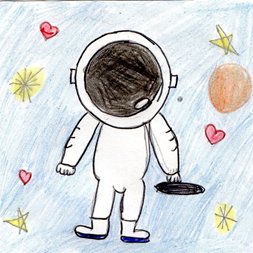
The Colégio Marista Goiânia also repeated in 2019 its 2018 participation. Everything began when one of the students of teacher Thaiza Montine Gomes read about the project on the internet and told about it to Thaiza, who then enrolled the school. “The commitment, this desire of being a researcher, the resolution of problems, changed much from last year to nowadays. They were very engaged since the beginning,” says the teacher.
In this year, a group of female students from Elementary I, with ages around 8 years old, questioned the teacher: why couldn’t they participate as well? And the most surprising thing about it was that their project was precisely the one chosen to represent the school in the competition for the choice of the best experiments of Garatéa-ISS.
The Center of Federal Technological Education of Minas Gerais participated in the Garatéa-E, another initiative of Mission Garatéa, and thus was acquainted with Garatéa-ISS. “It was a new learning. The fact that you can compete with children of other countries is a path for us to have the same opportunities that international schools have,” explains the teacher Jeane de Fatima Branco. Students, relatives and teachers have already selected, together, the experiment that will represent the school. “When a child experiences something, he or she is more likely to respond and form thoughts,” testifies the teacher.
The 2019/2020 edition of Garatéa-ISS is on the way to its final phase and the announcement of the winning experiment, that will travel to the ISS on the coming year, will happen in December.



































































































